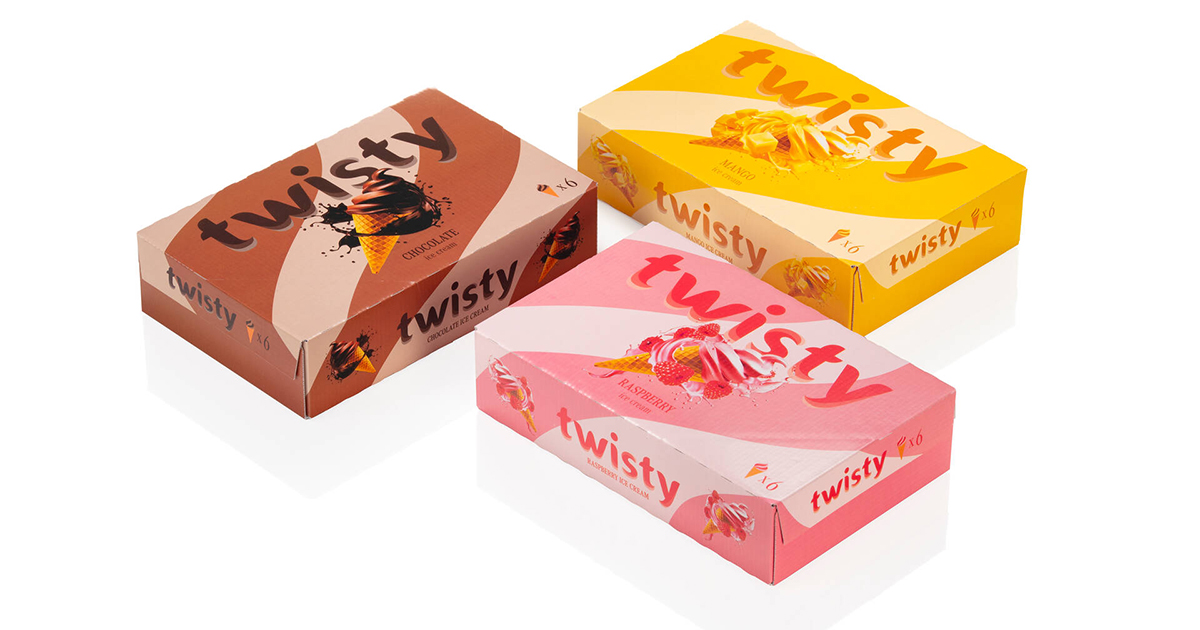Focused on maximizing efficiency and quality, and minimising the impact on environment, the partners achieved high-resolution printing in an ice cream cones packaging using a double coated white-top kraftliner (MetsäBoard Prime WKL, 125 g/m2) as the top liner. The E-flute corrugated board, featuring uncoated MetsäBoard Natural WKL Bright 90 g/m2 for fluting and inner liner, resulted in packaging that is 8% lighter and up to 36% lower in climate impact than traditional solutions with recycled fibres.*
 The achievement was possible by combining printing skills and a high-quality kraftliner, explains Ilkka Harju, Packaging Services Director of Metsä Board. Lari Seppälä, Head of Printing at Adara Pakkaus, considers the 188 lpi resolution a new world record, surpassing the usual maximum of 152 lpi (60 lpcm). This was made possible by the long-term collaboration and persistent development efforts. ECG printing expert Kai Lankinen emphasizes that process printing with flat-top-dot plates and water-based inks reduces startup waste and ink consumption while maintaining quality.
The achievement was possible by combining printing skills and a high-quality kraftliner, explains Ilkka Harju, Packaging Services Director of Metsä Board. Lari Seppälä, Head of Printing at Adara Pakkaus, considers the 188 lpi resolution a new world record, surpassing the usual maximum of 152 lpi (60 lpcm). This was made possible by the long-term collaboration and persistent development efforts. ECG printing expert Kai Lankinen emphasizes that process printing with flat-top-dot plates and water-based inks reduces startup waste and ink consumption while maintaining quality.
Stefan Schneider, Key Account Manager Corrugated at Apex International, a leading global anilox supplier, acknowledges the achievement as a world-class benchmark in corrugated post-printing. Nathalie Müller-Samson, Corporate Communications Manager at Siegwerk, also agrees, stating, “Our UniNATURE water-based inks can print at a high quality, but I haven’t seen this high resolution on post-print corrugated before.”
This co-creation project sets an example that flexographic printing quality is now on par with rotogravure and offset, eliminating the need to compare different methods: all can produce high quality. The differentiators in both quality and sustainability are the printing skills and substrate.
* Metsä Board follows process category rules for processed paper and paperboard which are based on ISO 14040/14044 life cycle assessment standards when assessing environmental impacts of its paperboards. For comparative assertion external dataset from ecoinvent has been utilised. This dataset represents a typical recycled fibre linerboard on the EU markets. Comparison excludes paperboard delivery as well as printing and converting processes. End-of-life scenario is based on Finnish waste management statistics and assumed to be the same for both packaging solutions. Climate Change methodology used in the assessment was EF3.1 Climate Change – Total
